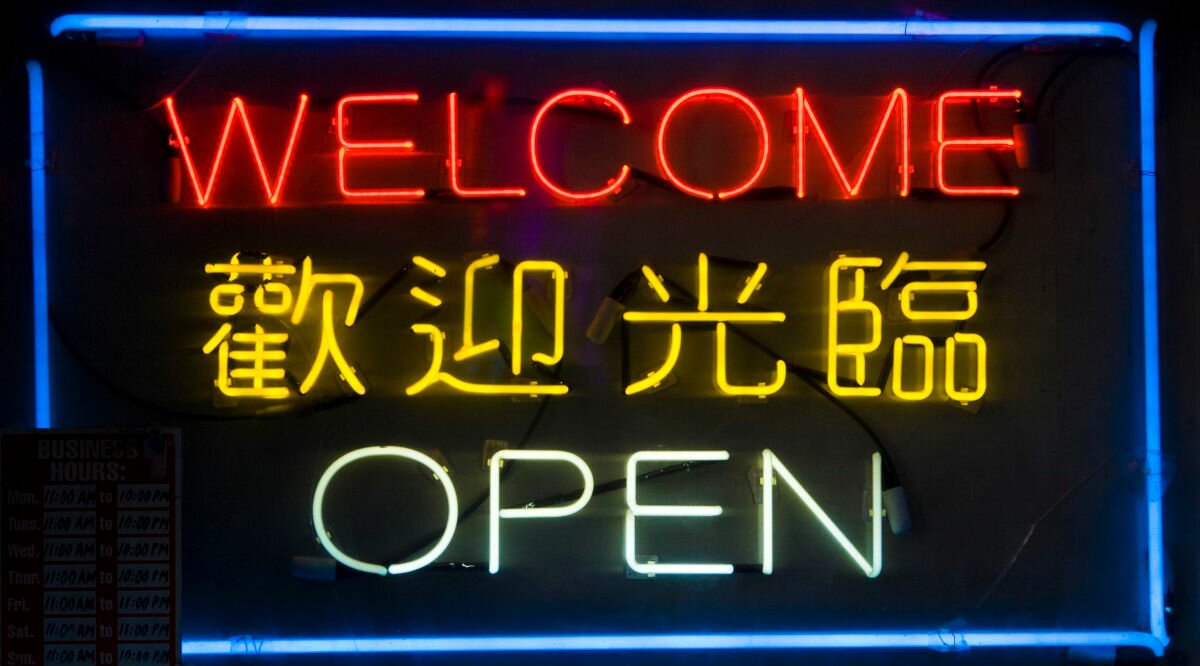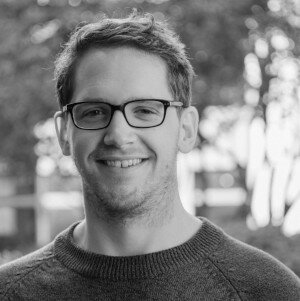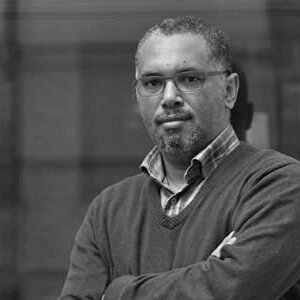Welcome Chris and Sean
by SF Team, 2 October 2019

https://flickr.com/photos/thomashawk/2181425489/
Congratulations to Chris Hartgerink and Sean Jacobs, the new Shuttleworth Fellows for September 2019.
The Shuttleworth Foundation is delighted to welcome Chris Hartgerink and Sean Jacobs to the fellowship community.
Many thanks to our Honorary Steward Ronaldo Lemos, a Brazilian academic and lawyer with expertise in intellectual property, open culture and technology. He has chosen two outstanding individuals for our September 2019 intake. Both come with important ideas with the potential to improve the world, and that push the boundaries of how open can be applied.
Both Chris and Sean have been recipients of Flash Grants, a small, no strings attached grant to help expand ideas that spark the interest of a Shuttleworth Fellow. Not only does this system identify new concepts and potential leaders helping to drive the open community forward, but it also alerts those people to us.
The community looks forward to sharing experiences and learning as our two latest fellows progress, and we offer our full support to both - welcome Chris and Sean!

Introducing: Chris Hartgerink
Background: A long-time supporter and champion of open science with a dual interest in scholarly research and alternative business models
Idea: Liberate Science is a mission to create an alternative scholarly communications system and reform scientific practice through an Open Worker Cooperative, making the value it produces work for all its producers.
The Problem
From the moment they take up employment, the everyday worker’s ability to engage and act is hampered. The many working at the coalface - with all the skills and expertise - rarely have the agency to direct and define the way an organisation tackles its challenges and allocates its resources. Instead, it’s the few who decide while sitting in a comfortable office, enjoying full control of the power and resources, distanced from the issues they’re deciding on.
This is a systemic problem visible in every corner of society, in systems seeking to maximise its profits as well as those with social endeavours. Workers are subjected to someone else’s mission rather than stimulated to act on their own beliefs. They find themselves tied to their submissive roles, precariously working paycheck to paycheck and too numbed to focus on the (collective) challenges that matter, despite being best-placed to make the optimal decisions on the issues they face. It is an unsustainable environment for the many, while highly desirable for the few. And it is worrying, given the state of the world today.
We look to the ideas of scientists to solve humanity’s problems and we are reliant on the organisations they work for to define their missions. But if those missions are determined by funding sources or publication potential rather than need, we are unlikely to see positive change happening as quickly as is needed.
The Idea
Chris Hartgerink has spent most of his career so far working within the open science realm and recognises these issues as major hurdles blocking the change he would like to see in the way research is conducted and communicated. This has caused him to question how we break away from the current dynamic, how we might free scientists from the whims of their employers and give them access, resources and ownership.
“I always felt like the problems I encountered were nested in other problems,” he explains. “It drove me to consider the issues too large to reform, pushing me towards looking for ways to upheave organisational structures. We need to do things drastically differently, because the current systems seem to be failing us. It has to change.
“So changing science and changing organisations slowly started merging: How do we change the scientific system? And also, how do we organise a business around it?”
His idea to tackle this dual issue is Liberate Science. It is a collaborative endeavour with the goal of creating a new, open scientific communications system to improve scholarly research. The vehicle he has designed to carry the mission is the very first Open Worker Cooperative (OWC) - a worker coop with open at its heart.
Liberate Science will have open principles written into its bylaws and provide workers with more agency, energy, money and time to act on their beliefs. There is an exciting potential for virality, too: employees can take the OWC model and any profits earned from the original project, and use it for other socially beneficial projects.
Chris is setting himself an incredibly complex and ambitious challenge, but at its centre lies a simple premise. “I just want to build an organisation that works better for the people involved in it,” he says. “So that people can shape their own working lives, share in the value they produce, and actually feel empowered to make a difference.”
The Fellow
Chris Hartgerink: “I have been engaged with the Foundation from the outside for some time and know how much its morals align with my own. We must share what we’re producing - the more people share, the more value you can produce. And I think we’re shifting to this sort of new paradigm where closing things off is only detrimental to collective value production.
“I’m really excited to get started on the fellowship. The technical design and the business model for Liberate Science is ready for implementation and, suddenly, that phase can start. But the fellowship also allows me to implement the cooperative - it pretty much puts it into the sixth gear.”
The Foundation
Chris is a long-time open activist who has been trying to change scientific research for the better for many years - sometimes at personal cost. His idea of using open to reform the field of scientific research is long-held and shared by many in the Shuttleworth community. We are happy to be able to support him to put his theories into practice.
It is important work, and a considerable challenge on its own merits. But the concept of putting open practices and bylaws into the heart of worker cooperatives promises to push the boundaries into unseen territories for the Foundation. While a monumental task, Chris has the potential and desire to act that could make serious headway towards simultaneously breaking down and reforming two unhealthy systems traditionally resistant to change.

Introducing: Sean Jacobs
Background: A journalist, political researcher, academic and founder of Africa Is A Country
Idea: Elevate underrepresented voices in African politics, culture and society, and reclaim the narrative currently imposed by Western media.
The Problem
Wherever you are in the world, it is likely you see Africa through the lens of American or European viewpoints and think of it in terms of fear or sympathy. You rarely hear from the voices of real Africans with real history and real problems, or those offering vibrant ideas, political thought and innovation. The vast majority have no agency or right to reply in a world where the narrative is determined by global media giants who simply don’t care: this 55-country continent - several times bigger than Europe - is only deemed worthy of coverage by two or three correspondents from major American or European newspapers.
This narrative is persuasive and pervasive, and even informs African sentiment about Africa. If you live in Nigeria, you learn about South Africa from the same global media agencies as the rest of the world - and vice versa - while inaccurate portrayals and one-sided debates mean that everything from public opinion to policy-making is influenced by this externally imposed narrative.
It is no surprise that Africa struggles to paint a different, more accurate picture of itself and that the continent’s progress is often hamstrung by the same old problems.
Sean Jacobs has been working towards changing this narrative for a long time. Over the past decade, he has been running Africa Is A Country (AIAC) as a platform to promote underrepresented African voices covering politics, culture and social change. With virtually no financial support, the project is currently recognised as one of the leading sites providing thoughtful and incisive commentary about the continent, and Sean’s sweat equity has started to make a difference. Now, he believes it is time to explore how far this concept could travel.
The Idea
Sean’s fellowship is focussed on scaling AIAC up and out from the margins of global opinion and right into the mainstream, helping to reclaim the African narrative from inaccurate media construction. He intends to bring its vibrant exchange of ideas into new territory by nurturing a network of writers and readers, and producing open content through a variety of different mediums. . One open aspect of Sean’s project is based around licensing. All of the content on AIAC is available under a Creative Commons license, and he sees this as an essential tool to compete with the reach of global media companies. Where TV stations and newspapers have wealthy backers and millions of customers to pay for distribution, AIAC looks to freedom, sharing and people to spread its message. It is an exciting opportunity that, if successful, could create an environment where open content can begin to pitch itself against traditional media.
Open is also integral to a critical part of the project’s new direction. In a continent where languages number in the thousands, English - the dominant media language - leaves far too many behind. “Creative Commons is key for us,” says Sean. “Anybody is free to use, recycle and change our content, and we want to see people translating the work so it is accessible to new audiences.
“But not just in Africa,” he continues. “I want to see this work published in India, and written in Tamil. I would like to see it in Russian. And I think if people are free to share it and use it, and circulate it, then we have a chance of being David against Goliath.”
The Fellow
Sean Jacobs: “For ten years we have been running AIAC without any money other than a few small grants here and there. It’s kind of a shock to get the fellowship - we can start putting some of our ideas into practice right away. But we need to do this in a nice, controlled manner, and make sure there are ways to create a sustainable future for ourselves.
“I look at the other fellows and I see they are about free information, freeing patents, or working on democracy. They do good work. I’ve been very interested in what the Shuttleworth Foundation is doing and delighted to be involved.”
The Foundation
Sean’s decade-long commitment to Africa Is A Country with virtually no financial support is the perfect example of skin in the game. It has grown into an important platform for authentic African voices to speak their realities, and scaling AIAC is a fantastic opportunity for the continent is to wrestle its own narrative away from the suffocating grip of global media.
From the Foundation’s perspective, this is also about taking open content from the periphery to the mainstream. In a world where the narratives of big media set the tone wherever you live, can openness be a valuable tool for providing a counter argument? Sean’s work will test the proposition at scale and, if successful, could offer a possible template for others to follow.